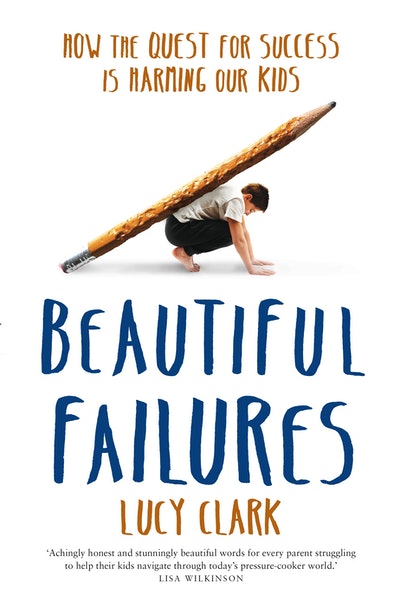Beautiful Failures author Lucy Clark dispels some well-worn education myths.
There are many accepted wisdoms about the way we educate our kids, and we generally have such a healthy respect for authority that we never question them. It’s only when things go wrong – as they did for my daughter – that we start looking at them from a completely different perspective. I think of Beautiful Failures as an incredible journey of discovery that started with me questioning the overarching accepted wisdom that ‘school is not for everyone’.
Shouldn’t school be for everyone? Why are so many kids disengaged or feeling wrong at school? As I asked questions I saw more and more accepted wisdoms turning on their heads. Here are some of the things I learnt.
Competition is not necessary for a good education.
This was probably the most confronting notion for parents to accept as I talked to them about learning. We have all ingested the message that competing with one another is the way to get ahead, and when we see education as a race to be won – you’ve got to beat the next kid – we assume that competition is the very foundation to education. It’s not.
Stage not age.
This is challenging – little kids in classes with bigger kids and vice-versa? Yet when you think about it, school is the only time in life we advance in age groups. With up to six years’ ability variance in classes, it makes so much sense to consider grouping kids by ability rather than by age. Doing so is proven to reduce bullying, too.
Stop talking about grades.
We have become obsessed with outcomes. Grades, letters, scores – they are the easy handles we hang onto to check how well our kids are doing. They don’t even begin to tell the whole story. Stop talking to your kids about whether they are going to get an A or a B, and start talking to them about what they are learning, what they like about it; and find out what sort of learner they are.
Put kids in charge of their learning.
What? Let kids run the show? Aren’t the teachers in charge? Well, yes, they are, but as kids get older if they are more involved with their own learning they will become more engaged with the material and much more likely to actually enjoy their education.
Generally broaden notions of success.
We measure such a small element of kids’ outcomes, so we have come to believe that academic results are all that matter. Not only is this misguided, but a dogged focus on academic outcomes is bad for learning, and bad for kids. We must pay attention to the softer skills children have – their creativity and their emotional intelligence, for example − and look at other ways for them to feel smart.













